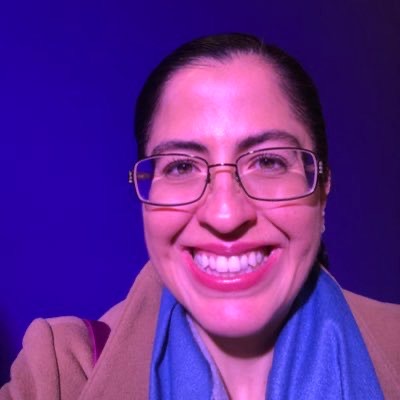Jaqueline Haces is a Food Chemist, MBA and PhD from Mexico City. She’s been working in the pharmaceutical industry for over 20 years and her current job involves analyzing global regulatory aspects of e-commerce and e-health. She’s been a columnist for industry journals, and is an advocate of diversity and inclusion.

I’ve always been a happy nerd. Whatever job it is I’m doing at a given time, science has always been there, sometimes close to the surface and sometimes hiding behind meetings and emails, waiting to be let out at the slightest opportunity. The pandemic has made it hard to focus on the scientific aspects of my day-to-day activities while also bombarding everyone with a tremendous amount of scientific evidence. Friends ask me the difference between the growing number of vaccines under development, send me messages about novel treatments being investigated, share conflicting accounts on the best way to use face masks… and ask for my opinion, as if I was an expert! It turns out, I can help, even if I’m not an expert. And Wikipedia opened the door for me to share the simple science behind complicated topics to a broader (if anonymous) audience.
The opportunity appeared as an email inviting me to be part of the COVID-19 Wiki Scholars Project, a 6-week training course on how to edit Wikipedia (properly, because literally anyone can do it) and help shape Wikipedia entries based on current scientific consensus. I expected it to be a technical course, on how to use the many applications associated with Wikipedia, but it was also an opportunity to take me back to a time in my life where I spend hours upon hours doing research in peer-reviewed journals, creating citation entries according to APA criteria, cross-checking facts through different sources and finally coming to the realization that I had found some true knowledge I couldn’t wait to share.
By researching trusted sources and posting my findings in the platform, I was able to do something about the information chaos that surrounds this pandemic, instead of just complaining about it, and hopefully bring science to more people than just my friends who ask about the best face mask to get, and whether test results can be trusted. I feel like I’m taking a weight off my chest by openly saying what I was silently thinking: science is for everyone, and our lives would be better if we all followed its principles.
I was not expecting to find happiness through editing a page on pandemic testing alternatives, but that’s exactly where the Wiki Scholars experience took me, back to being a happy nerd. And the best thing is, I can keep on doing it! I hope each one of us has a silver lining to this pandemic, and we all find a way to share our skills to make the world a tiny bit better.
Interested in taking a course like the one Jaqueline took? Visit learn.wikiedu.org.
Image credits: dronepicr, CC BY 2.0, via Wikimedia Commons; Jackieneumann, CC BY-SA 4.0, via Wikimedia Commons
